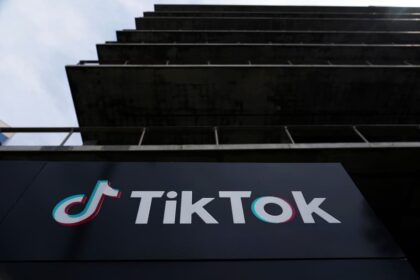Indonesia’s AI Surge: A Nation of Users, Not Yet Developers
Indonesia, the world’s fourth most populous country, is experiencing a remarkable surge in artificial intelligence (AI) adoption. With millions of Indonesians using AI-powered tools and platforms daily, the nation ranks among the global leaders in AI usage. Yet, beneath this impressive statistic lies a critical challenge: Indonesia is struggling to cultivate the homegrown talent needed to drive AI innovation and development. This digital talent gap threatens to limit the country’s ambitions to become a major player in the global digital economy.
At a recent launch event for the AI Center of Excellence, Deputy Communications and Digital Minister Nezar Patria highlighted the paradox facing Indonesia. While the country is a top user of AI technologies, it lags far behind in developing the underlying systems and applications that power these tools. The gap between AI consumption and AI creation is widening, raising concerns about Indonesia’s ability to compete in the rapidly evolving digital landscape.
Why Is There an AI Talent Gap in Indonesia?
The roots of Indonesia’s AI talent gap are complex, involving educational, economic, and infrastructural factors. According to Minister Nezar, Indonesia will need a digital talent pool of around 12 million people by 2030 to support its growing digital economy, which includes AI, cloud computing, cybersecurity, and other advanced technologies. However, the current digital ecosystem can only supply about 3 million skilled workers—a shortfall of 9 million people.
This gap is not unique to Indonesia, but it is particularly acute given the country’s size and ambitions. The rapid pace of technological change has outstripped the ability of educational institutions and training programs to keep up. Many Indonesian students and workers lack access to high-quality STEM (science, technology, engineering, and mathematics) education, and there are limited opportunities for hands-on experience with cutting-edge AI tools and platforms.
Furthermore, the digital divide between urban and rural areas exacerbates the problem. While major cities like Jakarta and Surabaya are hubs for tech innovation, much of the country’s population still lacks reliable internet access and exposure to digital skills training.
Global Comparisons: How Does Indonesia Stack Up?
Globally, countries like the United States, China, and India have invested heavily in building robust AI ecosystems, with strong links between universities, industry, and government. These nations have produced large numbers of AI researchers, engineers, and entrepreneurs, fueling innovation and economic growth.
In contrast, Indonesia’s AI development is still in its infancy. Aaron “Ronnie” Chatterji, chief economist at OpenAI, noted that Indonesia consistently ranks among the top three countries for weekly AI users. However, he pointed out that the country lags in the number of AI developers and the creation of application programming interfaces (APIs) for AI adoption. APIs are essential for integrating AI into software applications, and a low level of API development indicates limited local innovation.
What’s Driving Indonesia’s AI Adoption?
Despite the talent gap, Indonesians are enthusiastic adopters of AI-powered technologies. From language translation apps and virtual assistants to e-commerce platforms and financial services, AI is becoming an integral part of daily life. The country’s young, tech-savvy population is eager to embrace new digital tools, and businesses are leveraging AI to improve efficiency, customer service, and competitiveness.
Indonesia’s digital economy is one of the fastest-growing in Southeast Asia, with projections suggesting it could reach $130 billion by 2025. E-commerce, fintech, and ride-hailing services are booming, and AI is playing a key role in driving this growth. However, much of the underlying technology is imported or developed by foreign companies, limiting the opportunities for local talent to participate in the AI revolution.
The Role of Education and Training
To address the talent gap, the Indonesian government has launched several initiatives aimed at building digital skills. The Ministry of Communications and Informatics has partnered with global tech firms, universities, and national strategic partners to offer capacity-building programs for digital talent. These programs include coding bootcamps, online courses, and scholarships for advanced study in AI and related fields.
However, experts say that more needs to be done to reform the education system and make STEM subjects more accessible and appealing to students. There is also a need for greater investment in research and development, as well as incentives for startups and entrepreneurs to innovate in the AI space.
Challenges and Opportunities for Indonesia’s Digital Economy
The digital talent gap is not just a technical issue—it has significant economic and social implications. Without a sufficient pool of skilled workers, Indonesia risks missing out on the full benefits of the digital economy. This could limit job creation, reduce competitiveness, and increase dependence on foreign technology providers.
On the other hand, closing the talent gap presents a major opportunity. By investing in education, training, and innovation, Indonesia can build a vibrant AI ecosystem that creates high-quality jobs, drives economic growth, and positions the country as a leader in the digital age.
Government and Industry Collaboration
Collaboration between government, industry, and academia is essential to building a sustainable AI talent pipeline. The AI Center of Excellence, launched by the Ministry of Communications and Informatics, aims to serve as a hub for research, training, and innovation. By bringing together experts from different sectors, the center hopes to accelerate the development of homegrown AI solutions tailored to Indonesia’s unique needs.
Private sector involvement is also crucial. Many global tech companies, such as Google, Microsoft, and IBM, have established partnerships with Indonesian universities and startups to provide training, mentorship, and access to advanced AI tools. These collaborations can help bridge the gap between academic research and real-world applications, giving students and professionals the skills they need to succeed in the digital economy.
What Needs to Happen Next?
Experts agree that addressing Indonesia’s AI talent gap will require a multi-faceted approach. Key recommendations include:
- Reforming the education system to emphasize STEM subjects and digital literacy from an early age
- Expanding access to high-quality training programs, especially in rural and underserved areas
- Encouraging women and underrepresented groups to pursue careers in technology
- Investing in research and development to foster local innovation
- Creating incentives for startups and entrepreneurs to develop AI solutions for Indonesian markets
- Strengthening partnerships between government, industry, and academia
By taking these steps, Indonesia can build a robust digital talent pipeline and unlock the full potential of AI to drive economic and social progress.
In Summary
- Indonesia is a global leader in AI usage but lags in AI development and innovation
- The country faces a significant digital talent gap, with a projected shortfall of 9 million skilled workers by 2030
- Government and industry are collaborating to build digital skills through education and training programs
- Closing the talent gap is essential for Indonesia to realize its digital economy ambitions
- Investing in education, research, and innovation will be key to building a sustainable AI ecosystem












